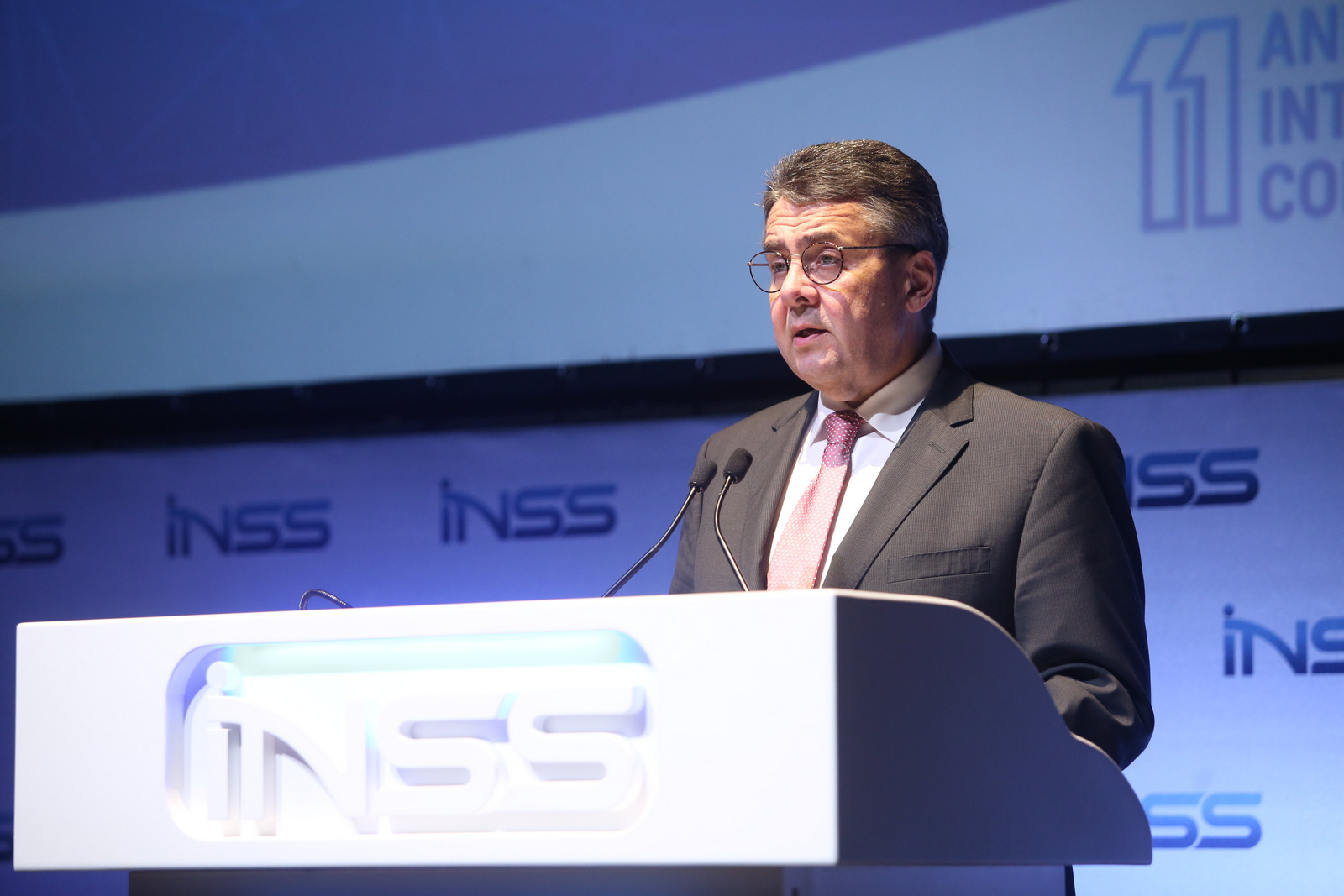
Mr. Gabriel addressed the shifting geopolitics of a diminishing transatlantic relationship and dynamics closer to Israel, with focus on the presence of Iran in the region and the need to pursue a resolution to the Israeli-Palestinian conflict. The minister also noted the strong and flourishing Israeli-German relationship today.
It’s more secure to be in Israel than to be in Germany today negotiating a new government. I have great respect for the culture of strategic discussion you’ve developed here in Israel, even if it has been a requirement given the life-and-death threats you face. Such strategic thinking is part of Israel’s success these past 70 years, and we in Germany have much to learn in this regard. The world has become a much less comfortable place, including for we Germans. For a while we are able to rely on the transatlantic relationship, and the US-European relationship was fundamental to our security. But US foreign policy outlook is shifting, and America seems to be in retreat. This began before Trump. We regret that the US is going in this direction, but we need to acknowledge this and adjust. China today is the only nation with a real geopolitical strategy. In your region, we also see new players emerging like Russia. Instability has become a permanent feature in some parts of the world, posing a substantial challenge for Europeans. Many of the liberal values we Germans and Israelis share are under attack. Democracy, human rights, rule of law – these are no longer uncontested global norms and they need our protection. We need to live up to these values ourselves.
We share Israel’s concern about Hezbollah, and we share your concern about Iran’s regional activities. At the same time, we continue to believe the JCPOA should be upheld as it will help to prevent Iran from producing a nuclear weapon. Germany and Israel share a strong interest in the stability of countries like Lebanon and Jordan. From the outside, it looks like Israel and some of the Sunni states are converging on the matter of Iran. With this comes great promise, but also great risk because alliances based only on a shared enemy will remain fragile.
The US traditionally served as a key broker in the resolution of conflicts throughout the Middle East. Can the Americans continue to play such a role if they take sides so openly? Some may say the Israeli-Palestinian conflict isn’t the leading issue anymore, and the status quo is not only manageable but preferable. Representing a country with a special commitment to Israel’s security, I do not share that assessment. We’re supposed to talk about strategy in this conference – so what exactly is Israel’s strategy in the conflict with the Palestinians? Young people in my country are increasingly unwilling to accept unfair treatment of the Palestinians, and it’s becoming increasingly difficult for friends like me to explain why we support Israel. Twenty-five years after Oslo, Palestinian and Israeli leaders are still unable to tell each other, “You also belong here.” And I raised this issue with Mahmoud Abbas shortly before coming here today.
Germany looks forward to the day it can move its embassy to Jerusalem. We believe Jerusalem should be the capital of both states. And we continue to support a negotiated settlement toward a two-state solution.
We recently commemorated Holocaust remembrance in Germany. I, the son of a National Socialist, a fascist to his dying day, sat on the podium next to a Holocaust survivor. To be here in Israel as Germany’s minister is especially meaningful, and it fills me with joy to recall the flourishing Israeli-German relationship.


